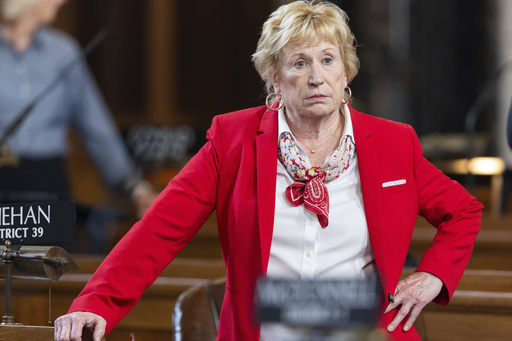Nearly a month after being called back to the Capitol to tackle escalating property taxes, the Nebraska Legislature has concluded its session without enacting significant relief measures. Despite passing a limited set of bills that aim to somewhat slow the rise in property taxes, a late attempt by a small group of lawmakers to reconvene later in the year with a new proposal was rejected before the special session adjourned. This rejected measure would have enabled voters to determine whether to decrease property tax rates for homeowners.
The legislation that passed primarily involved capping tax levies for local governments and adjusting an existing property tax credit to ensure all eligible individuals automatically receive it. To cover the approximately $140 million cost, two additional bills were implemented to make budget reductions. Governor Jim Pillen, a Republican, had called for the special session after his initial plan to reduce property taxes by an average of 40% failed to pass in the regular session. The initiative for tax relief was prompted by the escalating property tax burdens faced by homeowners and farmers as home and land prices surged in the state.
Instead of scaling back his proposals after the regular session, Pillen called for even more ambitious reductions, proposing an average 50% cut in property taxes. His plans for the special session included not only tax levy caps and budget cuts but also an expansion of goods and services subject to the state’s 5.5% sales tax. Moreover, the proposals introduced new excise taxes on items like liquor, cigarettes, and CBD products. However, the shift towards sales and excise taxes faced criticism from lawmakers across the political spectrum, who deemed it as potentially the largest tax increase in Nebraska’s history.
The final legislation signed into law by Pillen on Tuesday fell short of the substantial property tax relief initially proposed, amounting to less than 5% of the intended reduction. Nebraska Appleseed, an advocacy nonprofit, strongly criticized the budget cuts included in the measure, including $40 million from the Nebraska Department of Health and Human Services, which they fear may impact essential assistance programs for low-income residents.
Acknowledging the lackluster outcome, even staunch supporters of the measures admitted their disappointment. Republican Senator Lou Ann Linehan, who introduced the primary bill at Pillen’s request, expressed dissatisfaction at the signing, stating that while it may be disappointing, the automatic 20% cut for nearly half of property owners who had not utilized the existing tax credit in recent years was a notable provision. When asked about the benefit for the remaining 55% who were already claiming the credit, Pillen conceded that it was minimal.
Although Pillen had pledged to continue calling lawmakers back into session until Christmas if substantial property tax relief was not achieved, he announced on Tuesday that there were no plans to convene the Legislature again this year. Despite facing challenges in expanding Nebraska’s sales tax base, Pillen indicated his intention to persist in efforts to apply sales tax to numerous currently exempt goods and services, excluding essential items like groceries and medicine. He emphasized the potential revenue impact of eliminating sales tax exemptions established over the past few decades.




